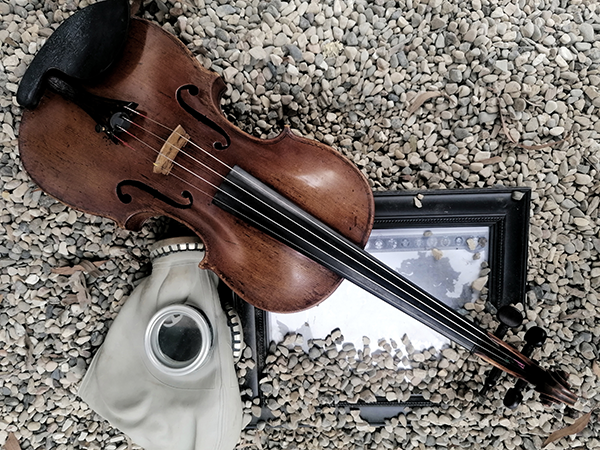Registration REQUIRED by 4pm on November 14, 2024 in order to attend this event.
Please join the Harriman Institute for a Director’s Seminar with Alexandra Birch. Moderated by Valentina Izmirlieva.
The history of the Soviet Union can be defined by periods of atrocity, genocide, and warfare. The Soviet Gulag, the Holocaust, and the civilian and military engagement in World War Two produced unfathomable mass death in sites across the entire USSR for a half-century. Music and sound provide an instant, humanizing, and immersive understanding of these atrocities. In four case studies, Birch will provide examples of how we can hear the Holocaust, the Gulag, Terror, and exile. She will discuss Weinberg’s sonic fragment’s taken to Tashkent and covertly buried in his violin sonata during a peak of Soviet antisemitism in 1948, sonically describe the Gulag between field recordings of Karlag and the recovered music of Nosyrev and Zaderatsky, look at the overlap between Nazi and Soviet occupation of indigenous space and present Saami recordings as reassertion against epistemicide, and discuss how we can hear the Holocaust in the Soviet context both with recovered music (Tyrmand, Leyvand) and through sound. Finally, where do we go from here? In the wake of renewed Russian expansion and aggression, how do composers like Khanon, Gubaidulina, and Stolyar provide a sonic and intellectual intervention against terror? Rather than an intellectualized view of political violence, music and sound connect us to impossible catastrophe and create an emotional and evocative response to historical events.
 Alexandra Birch is a professional violinist and historian who works comparatively on the Nazi Holocaust and Soviet mass atrocity, including the Gulag through the lens of music and sound. She holds a PhD in History from the University of California Santa Barbara, and a BM, MM, and DMA from Arizona State University in violin performance. Previously, she was a fellow at the US Holocaust Memorial Museum, the Wilson Center, and the Vienna Wiesenthal Institute, where she released CDs of recovered music and finished her first book Hitler’s Twilight of the Gods: Music and the Orchestration of War and Genocide in Europe. Her current project Sonic Terror: Music, Murder, and Migration in the USSR investigates eight case studies of the Holocaust in the USSR and Gulag, including indigenous interactions with Solovki, new recordings of Weinberg’s compositions from his time in Tashkent, sound recordings of the Gulag in Kazakhstan and of Auschwitz-Birkenau, and post-Soviet world premiere compositions, creating a humanizing look at incomprehensible violence.
Alexandra Birch is a professional violinist and historian who works comparatively on the Nazi Holocaust and Soviet mass atrocity, including the Gulag through the lens of music and sound. She holds a PhD in History from the University of California Santa Barbara, and a BM, MM, and DMA from Arizona State University in violin performance. Previously, she was a fellow at the US Holocaust Memorial Museum, the Wilson Center, and the Vienna Wiesenthal Institute, where she released CDs of recovered music and finished her first book Hitler’s Twilight of the Gods: Music and the Orchestration of War and Genocide in Europe. Her current project Sonic Terror: Music, Murder, and Migration in the USSR investigates eight case studies of the Holocaust in the USSR and Gulag, including indigenous interactions with Solovki, new recordings of Weinberg’s compositions from his time in Tashkent, sound recordings of the Gulag in Kazakhstan and of Auschwitz-Birkenau, and post-Soviet world premiere compositions, creating a humanizing look at incomprehensible violence.


